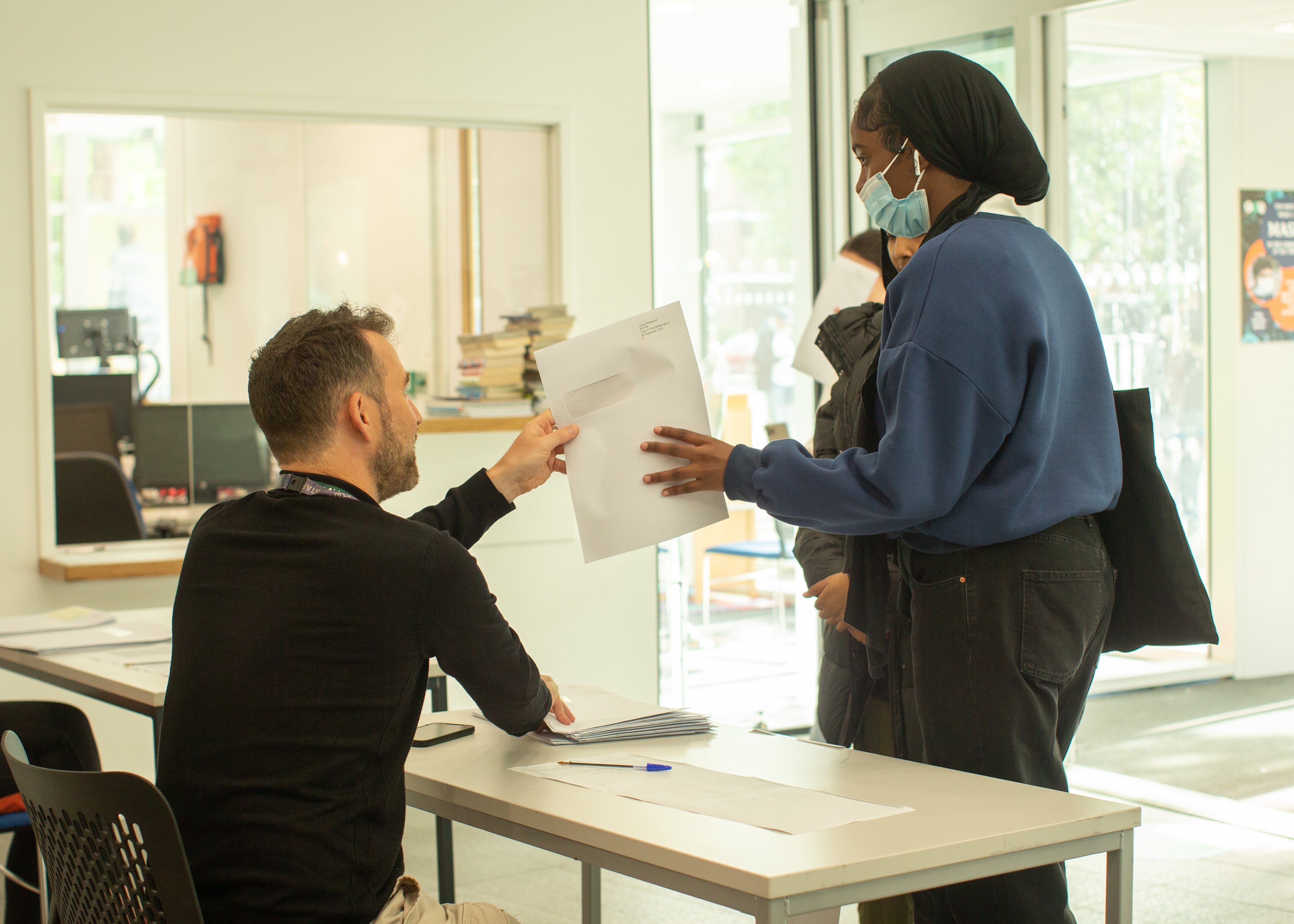3 things never to say to a teen who is disappointed with their A-Level results
Results are in and they are not what they’d hoped for. Imy Brighty-Potts talks to experts about dealing with this very sensitive time.

If exam results day doesn’t go to plan, it can feel like a total disaster, with future plans thrown into flux and disappointment tainting the end of a student’s school or college life.
As a parent or carer, it can be difficult to know what to do or say to support your young person through this challenging time, particularly if you haven’t been through the results process before. But you don’t want to accidentally say something that might make them feel worse.
First and foremost, it’s important to try and keep a sense of perspective over the situation.
“Exam results days are important, yes, and can dictate what you do next – for example, university,” says Dr Nick Smith, courses director and founder of The Oxford Open Learning Trust. “However, if you are anxious about not doing as well as you would like, just remember: whatever results you receive, it will not mean the end of the world. Try to rationalise the situation.”
Make sure you and your teenager know what the options are if they didn’t get the A-Level results they wanted.
“The UCAS clearing system should be your first port of call if you didn’t meet your university’s grade requirements. Many institutions will still have places available,” says Smith – up until the October 18 deadline (although it’s not recommended to leave it this late).
“If you are thinking of taking a break from traditional education, it doesn’t mean you have to simply stop learning. You can still resit A-Levels or even start studying for new ones whilst working.”
So, in the midst of the stress, disappointment and worry about the future, here’s what you shouldn’t say as a parent – and what to do instead.
1. “Why didn’t you revise harder?”
It’s too late to change the amount of revision that was or wasn’t done now, and saying this really won’t be helpful. What matters is the support you offer them, and their willingness to learn from the experience.
Fiona Stephens, a careers adviser for Working Wales, says: “Whatever you do, avoid being overly critical of your children if they are dissatisfied with their results. Asking them where they went wrong or why they didn’t revise harder will only make matters worse. Take an hour to think things through, stay calm, and then make a plan for who you’ll seek advice from.”
2. “Well, what are you going to do now?”
Remember what it’s like being a teenager? Emotions can be very intense and overwhelming, so try to avoid adding to the pressure and fear they’re probably processing.
“Don’t overwhelm them by making them believe they must plan their next steps on their own,” says Stephens. “Support is available, whether through their school or college or a careers adviser for some expert, impartial advice, and it can help to separate emotions from the situation.”
Also, remember that although university is a popular choice for A-level students, it’s not for everyone, and you can break into a variety of industries without a degree.
There are lots more options these days. Whether it’s an apprenticeship, a work-based learning programme, or starting a business, talk to your child about the importance of being open-minded and exploring all of the options available.
“If they are still interested in going to university but didn’t get their first choice, they can speak to a careers adviser who will guide them through the clearing process,” Stephens adds.
Just because their path isn’t going to be what you both expected, it doesn’t mean it’s going to be any less brilliant.
3. “Everything happens for a reason”
In addition to the above, this is a big moment and it’s perfectly valid for them to need a bit of meaningful support.
Stephens advises: “Don’t just use a generic throwaway line that could apply to anything. Instead of using clichés like, ‘Everything happens for a reason’, or, ‘Some things just aren’t meant to be’, offer practical advice that applies to their situation.”Whether it’s offering your support through clearing, or helping them look into apprenticeship options, degree apprenticeships, or finding work through a support programme available to young people, such as Catch 22, The Princes Trust, or Youth Employment UK.
Stephens adds: “This should reassure and inspire them that there are numerous opportunities available to them.”
Bookmark popover
Removed from bookmarks